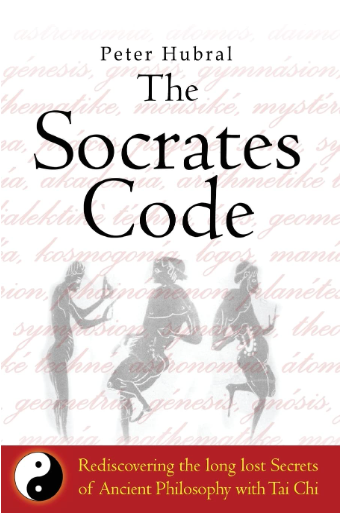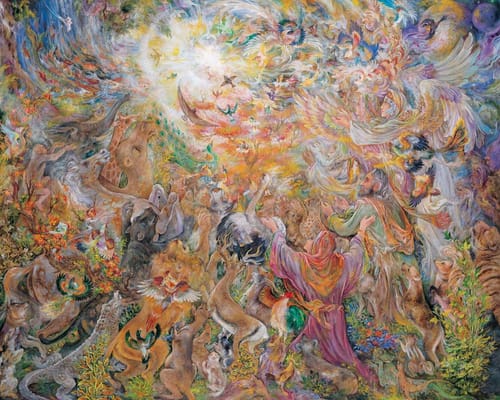Rediscovering the long lost Secrets of Ancient Philosophy with Tai Chi
I was introduced in 1997 by Dao-master Fangfu to the Taiji (Tai Chi)- or Dao-practice (Daoxing) that originated ca. 5000 BCE in China. It was conveyed thereafter until today in my Taiji-school in an uninterrupted genealogy of Dao-masters (Taiji-masters) that includes Laozi (Lao Tzu, Laotse, 6th century BCE), the author of the most popular book of China, the Daodejing.
Taiji-practice requires regularly practising in a relaxed still meditative standing position that leads increasingly to super-sensory knowledge, which is called Taijixue (Taiji-knowledge). It is expressed by the Dao-vocabulary (Taiji-vocabulary) Dao, Taiji, Wuwei, Youwei, Qi, Yin and Yang, etc, which is now increasingly establishing itself in the West due to the attention that more and more westerners give to Traditional Chinese Medicine (TCM), Taiji-exercises, martial arts, acupuncture and other Chinese health care methods.
I discuss in this book the Taiiji-vocabulary for two reasons. Firstly, I want to introduce readers to the work of Laozi, whose teaching is still alive, which is hardly known. It is based on the Taiji-practice offered in my Taiji-school. Secondly, because I use the Taiiji-vocabulary to interpret such ancient Greek masters like Pythagoras, Parmenides, Thales, Heraclitos, Democritos, Empedocles, Socrates and Plato.
I claim and justify that these were familiar with the contents of the Taiji-vocabulary, but had their own terminology for it. What I indicate implies that they practised Taiji more or less in the way I do.
I present a list of the Taiji-vocabulary that I use in this book at the end of this Introduction in Table 1. I complement it in Table 2 with a second list of original Greek words, which I revise in this book, because I consider them severely misinterpreted. Further Chinese and Greek vocabulary is found in the Glossary at the end of The Plato Code.
The sage experiences without abstraction, and accomplishes without action. - Laozi
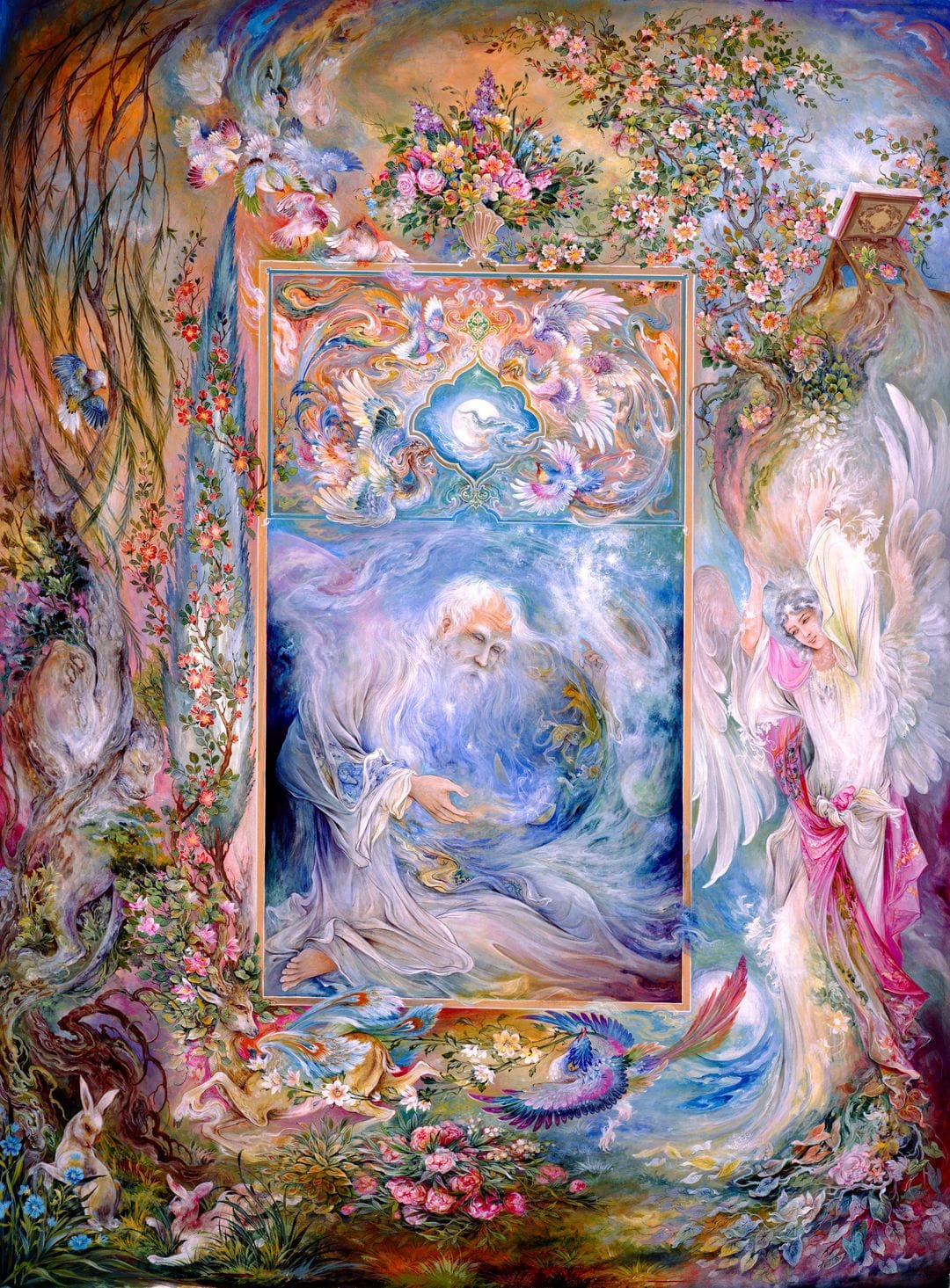
The Pythagorean/ Platonic genealogy
The mentioned Greek masters and many others cited in this book belong to what I call the Pythagorean/ Platonic genealogy, with Socrates being - in the view of Plato - one of the most eminent masters of this lineage. Socrates therefore entered into the title of the book. However, any other Greek master could substitute him, because they all taught, as I will show, the same Pythagorean/ Platonic philosophía, which I call shortly philosophía and illuminate throughout this book. It is the mother of modern philosophy. As I will show, mother and daughter have, however, nothing to do with each other.
The need to rigorously revise the misinterpreted philosophía
It is also agreed that the philosophía is the root of western science, music and cosmogony (cosmology) as indicated by the loanwords astronomy, atom, cosmos, geometry, idea, planets, practice, psyche, music, symposium, theory, etc, which are derived from the respective originals.
I cannot support this, because I compare the original vocabulary, from which the loan words are derived, with that of my Taiji-school and conclude from the very good match between the Taiji-vocabulary and original Greek vocabulary that my rigorous revision of the Greek loan words is absolutely justified.
Taiji-practice: The root of the unwritten and written doctrines
I detected in both teachings (schools), Taijixue and philosophía, the same unwritten teaching (agrapha dogmata) rooted in the common Taiji-practice, which is the source of both teachings, with their unwritten and written parts. In other words, I recognised a most impressive coherency between both “wisdom traditions”, which I will try to clarify, step by step, throughout this book.
When the eye does not see, the ear does not hear, and the mind does not know, then your spirit will protect the body, and the body will enjoy long life. - Zhuangzi
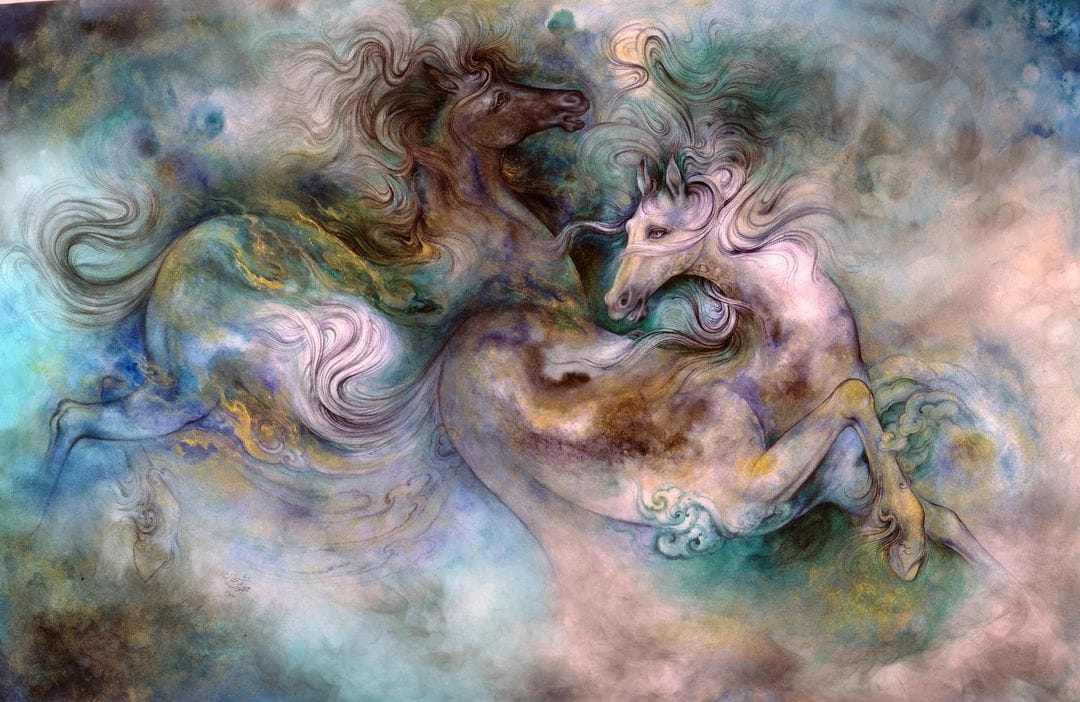
The main conclusions from the comparison
The comparison led me to conclude, for instance, that the Greek loan words have nothing at all to do with the originals astronomía, átomos, kósmos, geometría, idéa, planétes, práxis, psyché, mousiké, sympósion, theoría, etc. The reason is that they find their equivalents in the Taiji-vocabulary that results from the Taiji-practice, which enables the Taiji-practitioner to increasingly attain - in consequence of his practising - super-sensory perceptions that “create the vocabulary”.
What I indicate implies that the Taiji-vocabulary describes super-sensory (psychic, eidetic) experiences that result from regularly practising Taiji. It likewise implies that the Taiji-practice was for the Greek masters of the philosophía – just as it is in my Taiji-school - also the source of the original vocabulary. In sum, that the Greek masters were Taiji-masters. Recognising this gives, as I will show, the original Greek words a completely new (better: the old original) significance, which is totally unrelated to what we assign to the loan words today.
Comments on the three parts of this book
This book is composed of three parts. Part I shortly presents the Taiji-teaching (or Taiji-system), which shows the way how to obtain the Taiji-knowledge from regularly practising Taiji. In introducing readers step by step to the Taiji-system and its practice, I point out in Part II many convincing similarities between the Taiji-vocabulary and the original Greek vocabulary of the philosophía, which indicates that the Greek masters essentially taught something very similar to what I learned in my Taiji-school. Part III is dedicated to removing fundamental misinterpretations of the philosophía.
Many questions that remain unanswered in all three parts are answered in The Laozi Code and The Plato Code. The Laozi Code addresses an audience interested in cognition and health. The Plato Code addresses an audience interested in the distortions of the philosophía and its influence on European culture.
All three volumes refer to the same “code”. This is equal to saying that they refer to the Great Path (Path to Truth). It is the one and only path to acquire unconditioned self-observed knowledge!
The coherency between both wisdom traditions
What most struck me in my research and study was the impressive coherency between both the Daoist and Greek “wisdom traditions” that reflects itself not only in the equivalency of its original vocabulary, but also in its key-symbol. This is the symbol for Taiji and the Pythagorean Monad. Both are, as indicated in figure 1, almost identical. Both are represented by a circle. The Monad has a dot at its centre, the Taiji-symbol (Taijitu) has not. I will thoroughly explain their significance.
For this ... is the great error of our day in the treatment of the human body, that physicians separate the soul from the body. - Plato
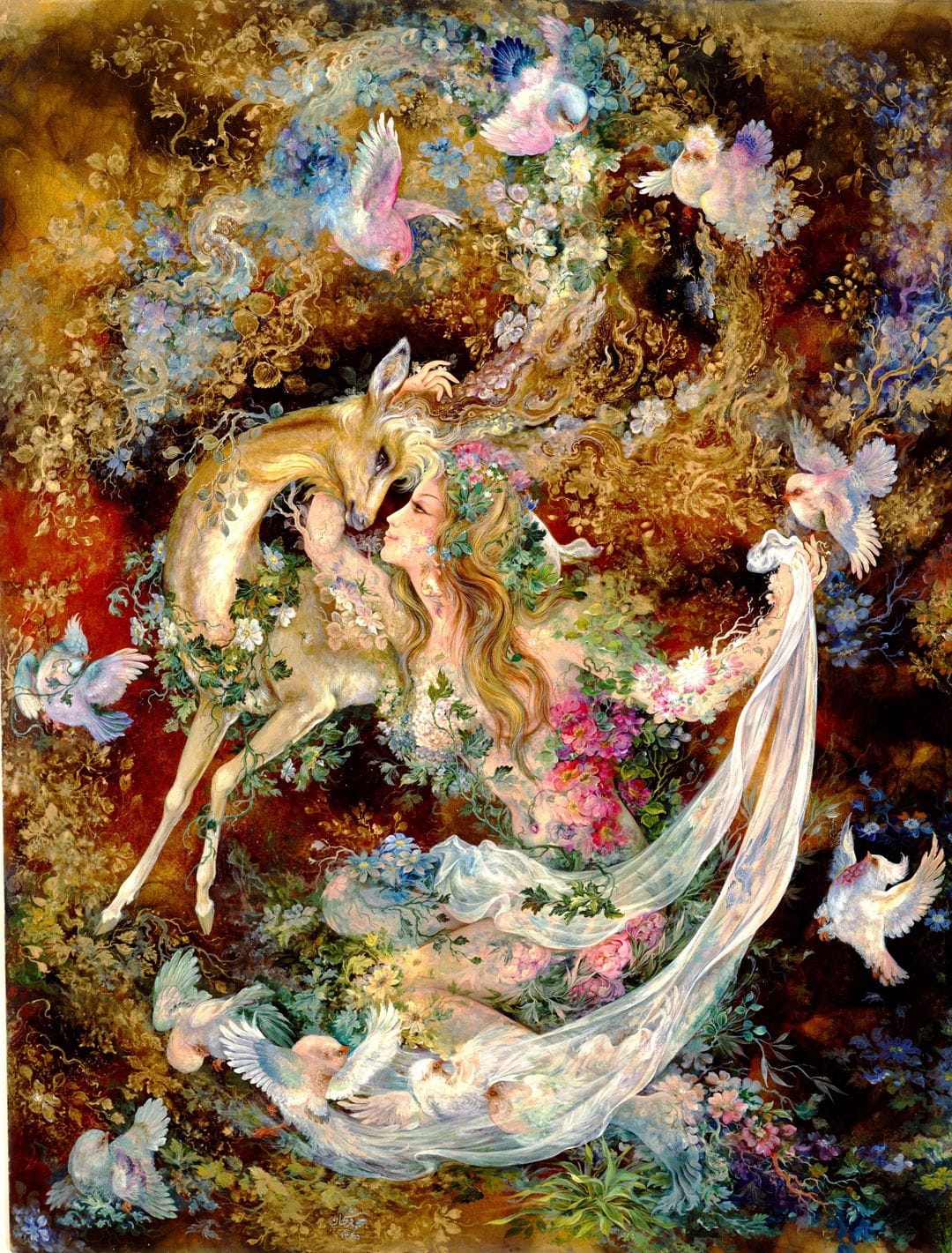
Author
Prof. Dr. Peter Hubral is a retired full professor of Applied Geophysics with many scientific publications and a life-long interest in Greek and Eastern philosophy. He published four books in Lotus Press and one in Longtai Verlag, in which he systematically destructs in a really scandalizing and most disturbing way all that is known about the Greek Philosophers. He argues convincingly that they taught their students the same profound wisdom as his teacher, Dao-Grandmaster Fangfu, who considers himself in an uninterrupted genealogy of Dao-masters that includes Laozi (Lao Tzu).
When a drop of light falls into the glass of a human soul, what would it create with love? -Mahmoud Farshchian
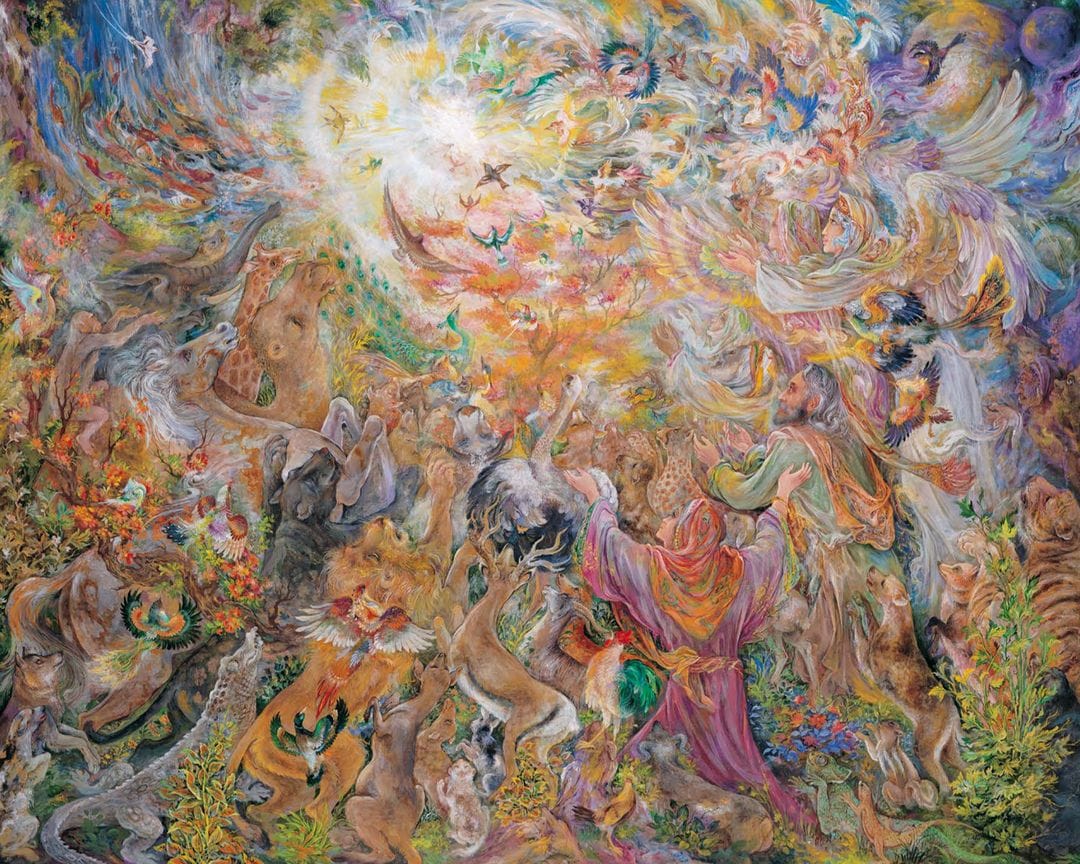
Artist
Mahmoud Farshchian was born in Isfahan in 1930, Mahmoud Farshchian grew up in the proximity of Isfahan’s royal mosque, where the architectural masterpieces of the Safavid dynasty informed his understanding of art and beauty.
Farshchian's natural genius was nourished by his family’s deep appreciation for art in all its forms. Beyond their physical appearance, Farshchian paid keen attention to their different moods and personalities. “There was this particular white rooster that was so friendly with me,” he remembers. “I carried food for him in my pocket, and he would push his head into my pocket and eat them.”
Farshchian’s father Gholamreza was a successful Persian carpet dealer, and the home was furnished with antiques, Cretonne curtains, and many carpets woven by the masters Archang (Ahmad Hartamni) and Mirza. Father would sit, arms crossed, watching in silence for hours as his young son drew the carpets’ lines and patterns. He would just look at me from the corner of his eyes. It was then that I realized the effects of my passion for art in my life. www.farshchianart.com
Note
This article is an excerpt of the book "The Socrates Code. Rediscovering the long lost Secrets of Ancient Philosophy with Tai Chi". Due to matching the Dao-practice to the practice of dying, Hubral completely dismantles the illusion that the western world has constructed about Pythagoras, Socrates, Plato, etc. He shows that they made much more profound discoveries with the practice of dying about nature than what we are told about their contributions to mankind in uncountable commentaries. To understand this is to find universal intercultural understanding and peace.
